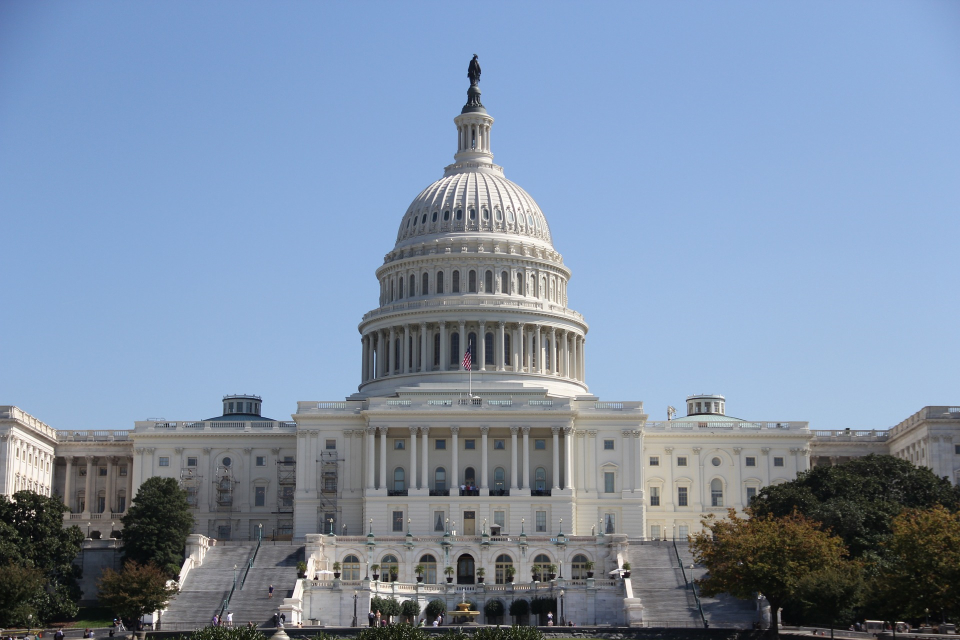The Representation Amendment Changes the Dynamics of Statehood for the District of Columbia
The movement to add the state of Washington, Douglass Commonwealth, to the union as the 51st state looks to be a possibility in 2021. The Democrat majority in the House of Representatives guarantees passage in the lower chamber. The Democrat majority (with the vote of the vice president) gives the Democrats the simple majority in the Senate, but passage for the bill is not assured. Should the Senate pass the legislation, Democrat President Biden will of course sign the legislation into law. Statehood is closer today than ever before.

Federal Capital Remains in Neutral Territory
The Founding Fathers wanted the nation’s capital to reside in neutral territory. At the time, people viewed the union as more a collection of sovereign nations seeking mutual defense and commerce than one nation of states. Moreover, great frictions existed between free and slave states even 70 years before the Civil War. The authors of the Constitution reached a compromise on the location of the nation’s capital to avoid giving any specific special interest or state an advantage. The district set the nation’s capital outside the jurisdiction of any one state.
Much changed in the 230 years since the Constitution formed the District of Columbia. What was a swamp few people lived in year-round in 1789 is now a metropolis with about 700,000 inhabitants today.
H.R. 51 Establishes the 51st State
H.R. 51 (Get it? 51? 51st state? A pun!) lays out the rules and expectations for the new state. Here are the general highlights.
- Adds 2 new senators, so the Senate has 102 seats
- Adds 1 new representative, so the House of Representatives has 436 seats
- Shrinks the District of Columbia in size to encompass only federal territory
- Deems the remaining federal territory the “Capital”
- Defines the boundaries of the “Capital” territory in great detail
- Specifies the federal government retains title to certain properties
- Specifies the state retains title to existing city properties
- Replaces “District of Columbia” with “Capital” in a variety of legislation
- Grants residents of the “Capital” absentee voter rights in the state of their most recent residence for federal offices
- Eliminates the District representative positions in Congress
- Expedites legislation proposing the repeal of the 23rd amendment to the Constitution granting the District of Columbia electors as if it were a state
- Transfers certain courts to the state
- Clarifies status of benefits for federal employees and other recipients
H.R. 51 expedites repealing the 23rd amendment by blocking most if not all opportunities to oppose the legislation in the House and Senate.
The state of Washington, Douglass Commonwealth, gets the full recognition worthy of a state. It commands its own National Guard, it taxes and regulates, and it sets its laws. Congress relinquishes its oversight of most of the district. Changes we may see include the elimination of the Height of Buildings Act of 1910, which limited the height of buildings in the District. Will we see skyscrapers overshadowing the national monuments? Given the value per square foot of land near the “Capital”, skyscrapers are a real possibility.
But the purpose of this discussion is speculation as to the effects the Representation Amendment would have on events of today, so let’s get to it.
Representation Amendment Dynamics
The question to be answered here is, how would the question of D.C. statehood be handled by Congress were the Representation Amendment in effect? Alternatively, if the nation ratifies the Representation Amendment after adding Washington, D.C., as a state, what changes for America’s newest state?
Let’s start with the second question, as the likelihood is greater at this time that the District of Columbia will become a state prior to ratification of the Representation Amendment. Given a union of 51 states, what changes for this particular state upon ratification of the Representation Amendment?
In summary, not much. As for Senate representation, the Washington, D.C., state legislature will appoint senators friendly to the Democrat party (although not necessarily Democrats). The people of the state overwhelmingly support the Democrat party, so it stands to reason the legislature will abide by the will of the people in selecting representatives of the state. The people in the Senate may change, but not the balance of power.
In the House, the Representation Amendment breaks the state’s one House district of 700,000 people into approximately 24 districts. If the new state comprises about 60 square miles of habitable land, then each House district encompasses roughly 2.5 square miles. In this, the Representation Amendment shines. In many American cities, the demographics of two adjoining 2.5 square mile districts can vary greatly and 24 districts could be worlds apart in the priorities of their inhabitants.
Twenty-four representatives of the Washington, Douglass Commonwealth, state pull together when matters affect the state as a whole, but cater to the people living within their respective 2.5 square mile districts any other time. The people of Washington, D.C., vote heavily Democrat, but within that camp people may prioritize differently. Two dozen representatives give voice to the spectrum of opinions found even within the Democrat party. Who knows? Maybe one or two districts will actually go Republican!
Back to the first question, which asked how D.C. statehood would be handled if the Representation Amendment were in effect today. The chances for the bill to pass in the Senate might be somewhat lower, as the Senate might have more conservative senators unlikely to relish the idea of diluting their majority. So long as Republicans have the majority in the state legislatures, the Senate is likely to likewise have a majority of conservatives (but not necessarily Republicans). Statehood for Washington, District of Columbia, and Puerto Rico may be a tough sell. However, with senators acting as ambassadors for states, the Senate will in theory be less ideologically divided than the Senate we have today. The expected political leanings of the two new state senators may have less bearing on the decision whether to support statehood if states voted.
The House of Representatives may be more open to the idea than the Senate. The addition of 24 new seats in the House results in exactly zero states losing a seat in the House, since the number of seats in the House floats according to the general population. With thousands of seats already making up the House, adding 24 seats sways the outcome of legislation very little. The political ramifications are lower in the House than in the Senate. Furthermore, members of the Representation House are likely to be less political and more results-oriented than congresspeople are today. The zeitgeist of the American people in ratifying the Representation Amendment very well could be “the more, the merrier” as it pertains to House membership. The American people could be more open to adding a state to the union given the minimal political ramifications.
The nation must still repeal the 23rd amendment under the Representation Congress. If the people are generally welcoming of new House members and the Senate is less ideological than it is today, the legislation will pass eventually and the Constitution amended soon thereafter.
Read how you can have a less political, more solution-oriented Congress in the book, The Representation Amendment (Because we don’t have enough people in Congress and the people already there are the wrong ones). Decisions whether to admit a territory into the union as a state should rest on factors other than which party controls the Senate.









